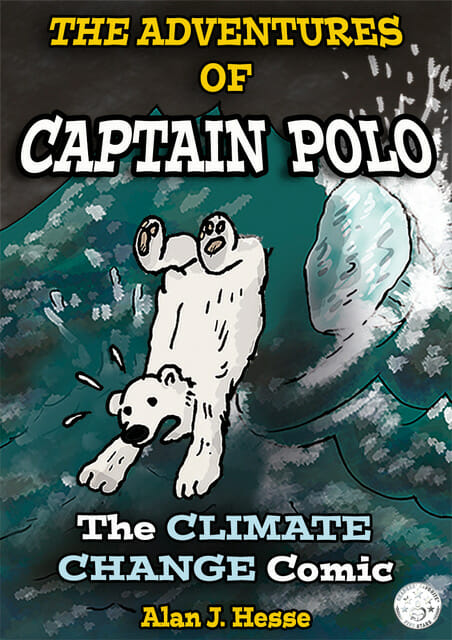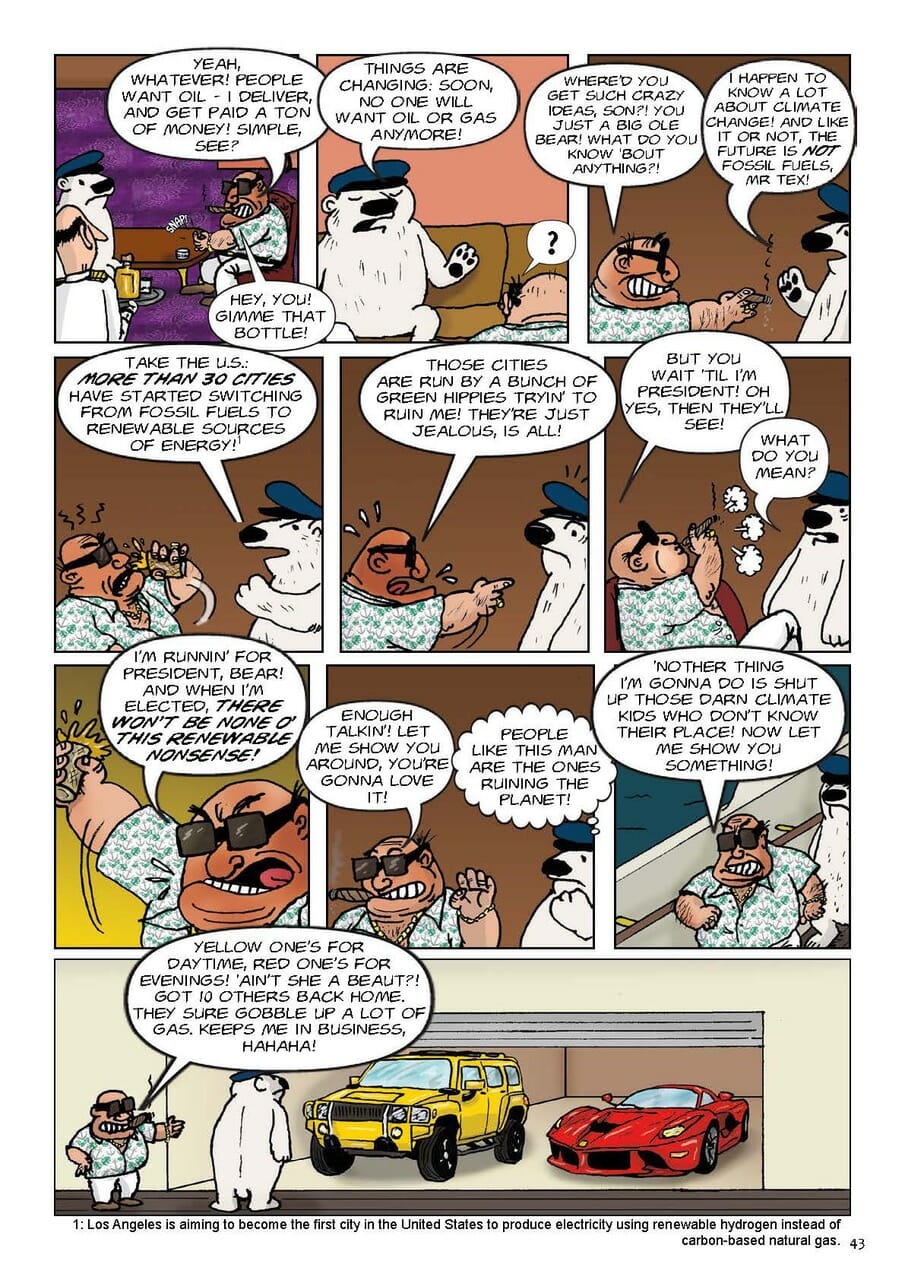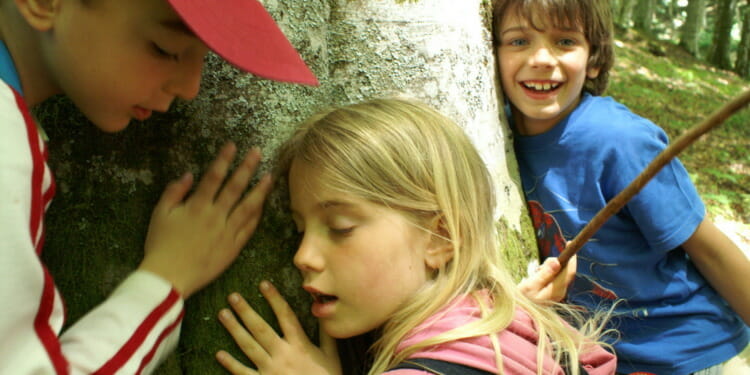When I was a kid, I received a large, hardback book for my 12th birthday. It was called The Encyclopedia of Animals. There was a snarling tiger on the cover, and the book was bursting with photos, diagrams and illustrations accompanying descriptive text replete with scientific names. The book was both rigorously scientific and entertaining.
That was when I realized what I wanted to do when I grew up.
Many parents want to educate their children about the natural world. Today, this means also understanding the fragility of nature, and our place within it. In an overwhelmingly urban global society, children may not easily grasp the fundamental notion that we are an integral part of nature – not mere spectators, much less its masters.
To understand what matters in today’s world of ecological meltdown, we all need to understand not only the way nature works, but also how the daily choices we make affect it. Today’s kids need more than interesting facts – they also need to understand the notions of sustainability, conservation and renewable energy.
More and more children today are in fact leaping forward and taking matters into their own hands in the context of the global climate crisis, demanding more education and action on climate change as they take to the streets. Many of them are putting us adults to shame.
Some parents and teachers believe that children, especially the very young, need to be shielded from the world’s problems by hiding the harsh facts. I once received a comment from a teacher about one of the scenes in my Adventures of Captain Polo graphic novels depicting Captain Polo, a polar bear, stalking a walrus for his lunch. The walrus escaped unscathed, but the teacher still thought I should have depicted Polo ‘trying to make friends’ with the walrus rather than trying to eat it. This is not the order of nature, however. Nature is cruel, and in nature, justice does not exist.
This is not to say, of course, that we as educators should traumatize our children. Quite the contrary: with understanding comes empowerment. Children who understand the natural order – even the part about polar bears hunting walrus – and how this order is upset by unsustainable, uncaring and short-sighted human behavior are in a much better position to grow up doing the right things.
They will also be better equipped to deal with emotional reactions such as anxiety, increasingly common among young people in the context of the global climate crisis. As reflected in a recent article, teaching children about environmental issues such as climate change is as much about providing information as it is about allowing them to address their emotions.
The power of storytelling
Kids are smart, and they understand far more than we give them credit for. They deserve – and demand – to be shown how they can become agents of positive change. Classroom surveys show that children the world over require learning about environmental solutions, not just the problems. Kids want to know what to do, on an every-day, practical level, at school, at home, and in their community.
At the same time, kids are still kids. In the words of Captain Polo: “Kids everywhere like to do the same things, like play and hang out with their friends.” When it comes to teaching kids about issues as hard as mass extinction, habitat destruction and climate change, the mode of delivery is of supreme importance. Beyond the fact that these are dark subjects, children want to have fun while learning, and this is where entertainment and arts can be channeled to a higher purpose. The Encyclopedia of Animals changed my life because it taught me a world of facts in a way I could relate to and understand, and at the same time, by virtue of its images, the book sparked emotions such as excitement and wonder.
I happen to believe that storytelling, in whatever format, provides a powerful key to both inform and empower the future generations of decision-makers in a way that is truly effective, because it plays upon human emotions.
This is why I now create graphic novels that combine entertainment with facts to teach about the existential threat of environmental collapse and climate change. I believe in the marriage between science and art, fiction and non-fiction, entertainment and education.

How to talk to your kids about climate change and environmental issues
Kids are smart and they pick up on many things adults like to think are beyond their understanding. One such topic is the current climate crisis. My suggestion to parents is not to try and hide the facts from their kids. Even the very youngest deserve to know what’s going on and why. Crucially though, children also need to know that there are solutions – many of them.
Here’s a useful little storyline you can use to inspire you when you talk with your kids about the climate change and the environment:
- For a very long time humans have harmed Nature because of the way we use things like coal, gas, petrol, electricity, water, animals and plants. Because of this, Nature is reaching its limit: the Earth is showing us we can’t go on using all these things like we’ve done so far.
- Although these problems are real, there is lots of good stuff going on too. More and more people everywhere are realising that we need to change the ways we use Nature – much more than ever before.
- This means that politicians are starting to listen to what the people want as well. As more people start changing their ways to reduce the pressure on Nature, more governments are changing laws in their countries. This helps us change the way we use things like cars, aeroplanes, electricity, water, animals and plants.
- These changes are already happening now. When enough people everywhere have made enough changes, Nature will get a break and quickly start to recover, just like it did during the COVID pandemic when everything stopped and people stayed at home. In just a few weeks, deer started appearing in cities, fish returned to rivers running through towns, and all that nasty pollution in the air started disappearing.
- What do you think we could do in our family? Do you think it would be a good idea if we also started changing the ways we do things at home?

Practical tips you can implement at home with your kids:
- Get them involved in growing a home vegetable patch. Explain the benefits of a plant-based diet and discuss the difference between sourcing food locally and importing food from across the world. Explain what organic produce means and why pesticides are harmful.
- Draw up a calendar together that defines one or more days in the week when certain sustainable actions will be implemented as a family, for example meat-free Fridays, walk-to-school Wednesdays.
- Get your kids involved in recycling, reusing and, if possible, repairing.
- As a family, make it a point to not waste any food. Explain that producing food has many environmental costs, and that wasting it is the same as taking more than we need from Nature.
- Include environment-themed picture books when it’s time to read a bedtime story, and use the moment to talk about the relevant issues and solutions with your kids. Let them ask questions, and if you don’t know the answer, tell them so but that you promise to look it up and get back to them later.
Editor’s Note: The opinions expressed here by Impakter.com contributors are their own, not those of Impakter.com. — In the Featured Photo: WWF Children’s Nature Camp in Tuscany. Featured Photo Credit: Alessandro Pucci










